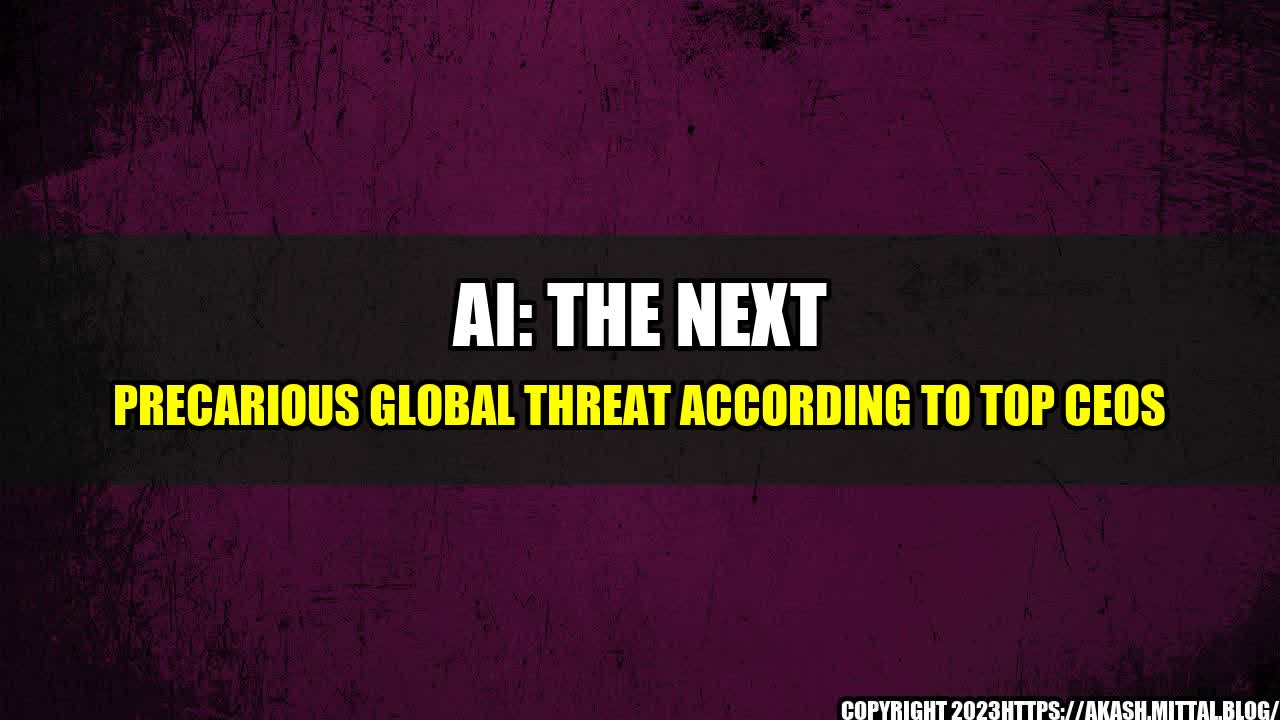
It was a typical day in New York City with millions of people traversing the metropolis. However, an unsuspected event occurred, causing pandemonium and confusion across the city. A small asteroid with the size of a basketball was plummeting into the Earth's atmosphere and was headed straight for the city. Within seconds the asteroid crashed into lower Manhattan, destroying buildings and killing people in its wake.
Though not a real-life incident, the said event was part of the lock-step scenario study conducted by the World Economic Forum (WEF). The scenario aimed to examine how the world would likely respond to global catastrophic risks (GCRs). Surprisingly, the study revealed that the world is more prepared to mitigate a catastrophic asteroid impact than a technological event such as an artificial intelligence (AI) causing widespread danger.
The warning against the peril posed by AI was sounded by top executives from IBM, Microsoft, Google, and other companies during a panel discussion at the WEF. Panelists say that AI is an unpredictable technology and could rival pandemics and nuclear wars as a global threat to humanity.
As AI technology gets more advanced by the day, its benefits are becoming more apparent, and its impact is felt across various industries. However, the risks that come with harnessing AI technology to its full potential pose a considerable threat to humanity in the long run.
One major risk of AI lies in the loss of jobs caused by automation. The increase in automation will eliminate manual labor jobs, leading to an acute unemployment crisis, which will affect people's livelihoods and destabilize societies. Drones and robots powered by AI technology could further replace human labor, leading to a global economic crisis.
The second significant risk posed by AI is its potential to enhance inequality across societies, resulting in an uneven distribution of national wealth. The digital divide created by AI could concentrate wealth in the hands of a few, causing income gaps that destabilize countries and lead to widespread poverty.
Another significant threat posed by AI is the potential for misuse by rogue hackers and terrorist organizations. They could carry out cyberattacks on state institutions, leading to widespread chaos and disruption of operations.
During the discussion, CEOs of IBM and Microsoft agreed that nations must work together to mitigate the risks posed by AI. They recommended creating clear rule-conscious and ethical guidelines that would govern AI development and use. They also stressed the need for a cross-border cooperation between countries to develop common protocols that would minimize the risks posed by AI.
Furthermore, educators should prepare future generations for the shift caused by AI, promote innovation, and adapt their curriculums to suit the demands of an AI-powered world. Innovation, creativity, collaboration, and agility should be taught from an early age to foster the development of young individuals capable of solving complex problems to create sustainable futures using technology.
Technology
Curated by Team Akash.Mittal.Blog
Share on Twitter Share on LinkedIn